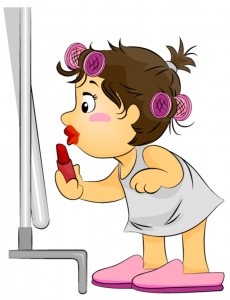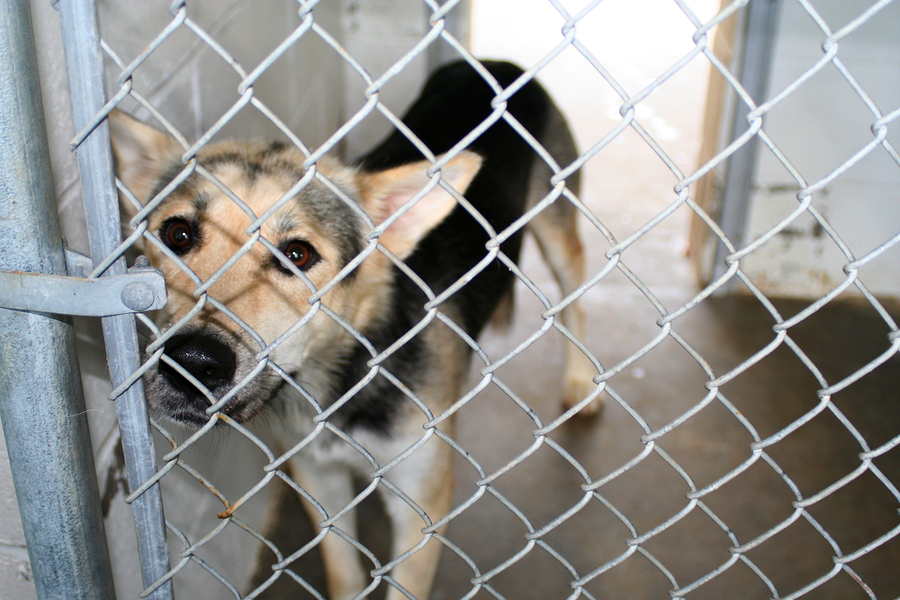On the eve of Halloween, many young girls are choosing overtly sexy costumes.
 Imagine a 5-year-old dressing up like Rihanna. Scary…frightening….ghoulish, indeed.
Imagine a 5-year-old dressing up like Rihanna. Scary…frightening….ghoulish, indeed.
I honestly cannot even remember when I first heard the word “sexy,” and learned what it meant. Young kids today, however, learn the power of looking “hot” and “sexy” before they learn to read many times.
While I firmly believe that most mothers love their children and would never intentionally harm them, I invite them to consider the potential dangers of early sexualization through inappropriate dress.
Psychosexual development is a precarious thing…and it can be harmed in the same way alcohol, cigarettes, and malnutrition can harm a child’s physical health. Allowing children to dress provocatively before the age they can deal with the consequences can be dangerous. Young girls are not yet equipped to deal with the consequences of “flexing their sexual muscles.” Responsibility comes with any power; so, until your child can understand appropriate and inappropriate sexual attention and activity, consider allowing them to dress in a fun, safe, age appropriate costume.
There are parents out there who not only allow, but also encourage, their young daughters (and sons) to look “hot” and “sexy” in their Halloween costumes. There are mothers who dress their daughters like rock stars, celebrities, and super models in bikinis, mini skirts, fishnets, heels, and padded bras. Unfortunately, marketers of the fashion industry take advantage of the belief that “Girls have to be sexy.” Girls buy it, and boys buy into it.
The potential danger in sexualizing and objectifying children is three-fold:
- Provocative dress and demeanor of children gives the appearance of sexual readiness. This can be construed as tacit permission to approach by kids their own age, or by adults who are attracted to minors. This can increase the vulnerability and risk for sexual abuse. Further, this allows for rationalization, which can increase situational offenses through unexpected titillation and arousal.
- Negative self-image. Precocious sexualization/objectification of children can lead to future issues of: promiscuity, sexual compulsivity/addiction, frigidity, intimacy issues, low self-esteem, belief that one’s only value is in their appearance, narcissism, addictions/self-mutilation, depression, anxiety, eating disorders, body dysmorphic disorder, perfectionism, and more. Girls are being trained to believe that they are inferior unless they are hot, sexy, strutting, skinny, and outstanding physically. They are internalizing these messages about their looks, body, image, gender roles, female “shelf life,” and many times you do not see the downside of this until they are adults.
- Cognitive Function Decline. “Dumbing Down” really happens when looks are repeatedly praised over intellectual abilities. A study was recently done where girls completed a math test wearing a swimsuit, and then took a similar math test in a sweater. Their scores were considerably lower when taken in the swimsuit. Bottom line, IQ can suffer when physicality is overly emphasized.
Children naturally want attention, and negative attention is better than none.
Children naturally want to please their parents and others who are bigger, older and perceived as more powerful, and many will comply to appease. As a parent, you are responsible for setting healthy boundaries, ensuring, as much as you possibly can, the qualitative nature of attention your child receives. Many times, sadly, the early sexualization of children reflects the unfinished sexual business of the parent. E.g., when a mother dresses her 4-year-old daughter like Madonna, it is more about herself than the daughter. A 5-year-old cannot handle sexuality any more than a 5-year-old can bench 300 lbs. Insisting that they do in either of these cases is abusive.
A common argument is that children are too young to understand sex or its repercussions. Childhood is a sensitive period where the brain’s neuroplasticity is imprinting stimuli at a ferocious pace. Their psychosexual development is at work. Seeds are being planted and growing. They may not suffer any repercussions in the moment, yet the negative effects appear later on. Indeed, they may not know what sex is or have the proper vocabulary yet for being ogled or fondled or worse, but they know reinforcement/attention.
Here are some tips for fostering healthy sexual development:
1. Model it yourself. When you respect your body and self-image, as well as your child’s, chances are they will emulate that. As well, model healthy, realistic and meaningful goals that require intelligence, creative, humor and/or skills.
2. Know that there is a special beauty at every age. Accepting flaws and imperfections allows children to understand normal growth processes and embrace a healthy sense of acceptance of self and others. It also allows for internal growth vs. inordinate emphasis on the external. Every child possesses her/her own unique internal beauty and specialness that no costume or wardrobe can provide.
3. Train your children to have respect for their bodies and to learn to command proper attention from others, not to manipulate them with sex or pander to them.
4. Know who your kids are socializing with. Peer pressure is equal to and/or greater than parental influence.
5. Know what your children are watching on TV and online. Have conversations about sexuality (when appropriate) and gender equality.
6. Remember, boys suffer from the objectification of girls, too. The best gift a man can give his son is to treat all females with respect and dignity.
7. Respect your children and allow their sexuality to blossom in its own time. They will have plenty of years to be sexy (60, 70, 80, or more!). Why start at age 5?
By Nancy Irwin, a contributing blogger for JenningsWire





